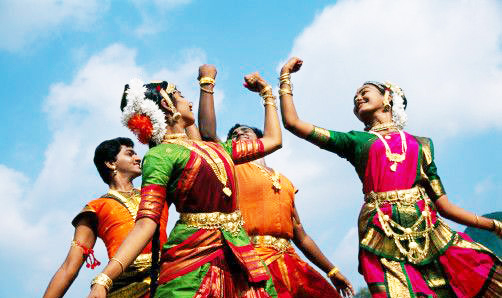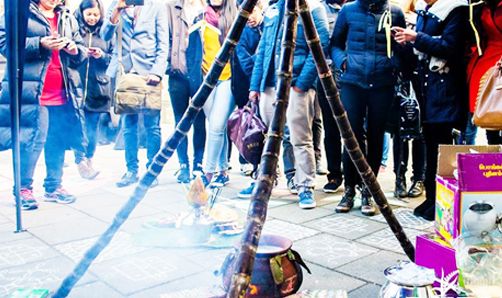Northern Tamil Association(UK) Origin and early development
From a humble beginning in 1986 NTA has grown and developed into what it is today, a large charitable organisation devoted to sustaining and developing Tamil language and culture in the UK.
Life was not comfortable for Tamils living in SriLanka from 1958 onwards. During 70’s and 80’s number of Tamil professionals and skilled workers emigrated from Srilanka to various countries around the world. A large number came to UK and settled in the south of UK around London. A good number of Tamils came to the North and had no problem getting jobs in the cities around Manchester. Obtaining visa to UK was easy at that time. Education in the SrLankan Universities was in English medium, and all migrants had a good command of English language, and this was very helpful in settling in the UK.
The children who were growing up faced a different kind of situation. They had to attend local schools and only few of them were Asian looking. Children, adaptable as they are, had no problem integrating with local pupils. Large number of them went to universities later in their life. This posed a new kind of worry to the parents. If these children were to grow up in to this kind of environment, there were no other choices, Tamil language and culture will be totally alien to them. Tamilians are a race proud of their language and culture, they have very good reasons to be so. Whenever and where ever Tamils met this will certainly be a topic of conversation. How to expose and create interest to our younger generation in the richness of Tamil culture.

Kitchen gossips and dinner table chats gave way to some serious talks. A group of enthusiastic Tamils got together and started discussing as to ways and means of passing on our rich culture to the new generation. They formed an association and named it Northern Tamil Association. The word Northern denoted north of England. A constitution was drafted, and bank account opened.
The very first meeting was held in Bolton hall in 1986. Ever since two events were staged every year, one around Tamil new year in April, and another nearer Deepavali in November. This tradition has never been broken up to now.
Early years were not easy for NTA. There were no funds, no regular income, no sponsors. Times was hard at that time and not many had spare money to support NTA or any other organisation. However, the committees manged to stage bi annual events, in various community halls and school halls. The committee members provided home cooked meals for the events, and there was a small entrance fee to cover the overhead costs. Life became difficult and at time it was felt that NTA cannot be sustained in the current form. If not for one or two generous members, who donated four figures sum, out of their own pocket to prop up the organisation, NTA wouldn’t be what it is today.
There were number of teachers in the community and they volunteered to teach the youngsters music, dance and drama. It is to their credit that on every occasion there were number of items staged by the youngsters. Adults too contributed various items.

NTA has become more popular, membership improved, funds improved. NTA was now in a position to bring in outside groups to perform. In the year 1994, ‘Chitralaya’, a young Tamil musical group from London was the first group to perform for NTA. In 2007, for the first time NTA brought in artists from Chennai. Gangai Amaran and his party performed with the support of ‘Chitralaya’, who by this time has become a very accomplished group. NTA started to bring artists from Tamilnadu every year regularly and it is nice to see the gathering of about 800 to 1000 Tamil people, enjoying these concerts with their families.
The vision and aspirations of the founder members, carried on by successive committees by their dedication, enthusiasm and hard work has produced dividends. NTA will grow and develop to be a source of inspiration for all generation of Tamils in the UK.
